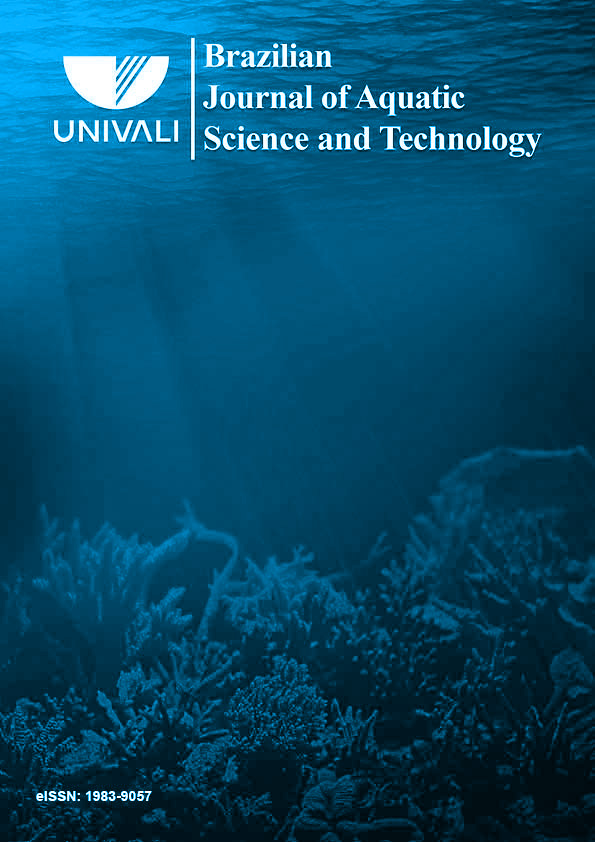Percepção de usuários de praias em relação ao lixo marinho como uma ferramenta para ações efetivas contra essa problemática
DOI:
https://doi.org/10.14210/bjast.v24n2.16312Resumo
This study aimed to identify the perception of beach users about the problem of marine litter, and to characterize them from the socioeconomic point of view. To this, 43 open questionnaires were conducted with users from Curva da Jurema and Ilha do Boi beaches, in Vitória, Espírito Santo, southeastern Brazil. From the socioeconomic point of view, our results showed that there were no significant differences between the users of the two beaches. With respect to marine litter, the interviewees showed a high level of knowledge about this issue, knowing what the proper disposal of the litter they produce should be and what damage it can cause to the environment and also to humans. It is noteworthy that respondents blame other beach users for the accumulated litter, suggesting that the lack of education and awareness of other people is the main factor for beach garbage. Thus, we conclude that users of both beaches perceive the problem of marine litter, but do not identify their actions as part of the problem. Thus, constant measures are required in public-private partnerships focused on education on the subject, in addition to the installation of various points of garbage collection and monitoring their effectiveness. As a final product, actions were suggested with the different actors involved in the problem, in order to minimize the effects of this pollution.
Downloads
Publicado
Edição
Seção
Licença
Autores que publicam nesta revista concordam com os seguintes termos:
- Os Autores mantém os direitos autorais e concedem à revista o direito de primeira publicação, com o trabalho simultaneamente licenciado sob a Creative Commons Attribution License que permitindo o compartilhamento do trabalho com reconhecimento da autoria do trabalho e publicação inicial nesta revista.
- Autores têm autorização para assumir contratos adicionais separadamente, para distribuição não-exclusiva da versão do trabalho publicada nesta revista (ex.: publicar em repositório institucional ou como capítulo de livro), com reconhecimento de autoria e publicação inicial nesta revista.
- Autores têm permissão e são estimulados a publicar e distribuir seu trabalho online (ex.: em repositórios institucionais ou na sua página pessoal) a qualquer ponto antes ou durante o processo editorial, já que isso pode gerar alterações produtivas, bem como aumentar o impacto e a citação do trabalho publicado.

